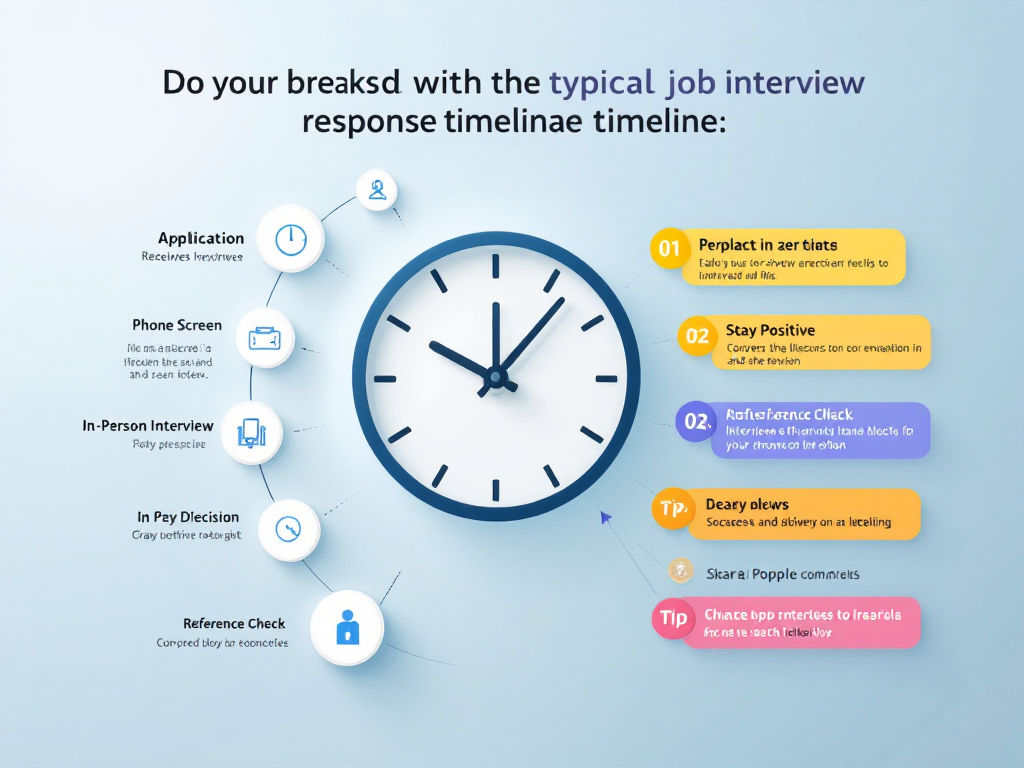
What to Expect After a Job Interview: Timeline Insights
The Waiting Game
Now say; Emily, a young marketing professional, just finished a fantastic interview for that dream job at a prestigious digital marketing agency. When she finally walks out of the modern glass building, she can't tell if she's relieved or excited. But soon, another sensation sets in — the anxious anticipation of waiting for that all-important call, or email. The waiting game starts, a time of uncertainty and of hope.
The post-interview period is a familiar time for job seekers — filled with excitement, and perhaps anxiety … Candidates constantly ask “How long until I hear back/a decision?” and “What determines the length of this time?” How long you typically have to wait for a reply can vary based on things like the payor company’s job application process, how many other candidates they’re considering, and even the industry! Knowing these might help set expectations and take some of the sting out of waiting.
Connections to Real Life & Personal Experience
Hiring decisions in most workplace settings are multi-step, multi-player affairs. Consider the case of a company recruiting for an important position. The hiring manager has to work with HR, conduct several rounds of interviews, and perhaps even discuss with team members. This complexity can result in candidates waiting longer for feedback.
For candidates such as Emily, the waiting can be a moment of intense reflection, uncertainty. Personal experiences differ from person to person, but most people may find this phase tricky as it tends to affect their confidence levels and decision-making capability. A limbo state could lead candidates to over-analyze their performance or second-guess their fit for the role.
Given personal experience, plenty of professionals recall their own uncertain waits, and offer tips for navigating this time. Some remember how they spent the time concentrating on alternative career paths, which kept them from feeling down.
Main Key Learnings & Action Steps
It’s important to know the typical timelines for getting contacted after a job interview. Companies generally strive to provide feedback between 1–2 weeks (although it varies depending on the size of the company and the industry they are in as well as how heavily they are hiring). For applicants, the wait that follows can be agonizing as they wait to sniff out prospects, a period that was once weeks is now hours as technology like ATS (applicant tracking systems) and automated communication work above aeons ahead.
To set expectations during this time:
- Stay informed: Ask during your interview when the company’s normal timeline is for the hiring process.
- Be persistent yet proactive: Wait for 24 hours and follow up with a personalized thank-you note.
- Maximize the time: Stay engaged with your industry by consuming content on LinkedIn to demonstrate that you’re still invested.
They may not have responded due to several factors, such as if decisions take a long time or if HR is backed up. Recognizing these events that could prolong delays helps keep the approach grounded.
Success/Aha Moment
For instance, John, an engineering graduate applied for a role at a tech startup. Instead of fretting, John filled the time by signing up for an online course that directly related to the job role, which he referenced in his follow-up. This move not only kept him positive but also impressed the hiring team, and he was offered the job. Besides, through these few months he learned various new skills which increased his competence and confidence in his expertise thus increasing his value to the firm.
John’s story illustrates the strategy of using the waiting period productively. With a little self-improvement and keeping candidates in the loop, the time frame can be a very useful period. Such patience and a proactive frame of mind can turn up positive results and even improve one’s candidacy. Such an approach can turn what could sound like a dreadful waiting period as into an important time of growth development both personally and professionally.
Well, these are some insights that you need to know!
Asking about waiting periods during interviews can be a sensitive topic, but it offers valuable insights when done the right way.

Candidates must highlight how they spent this time developing skills or studying things relevant to the position. For example, improvement through attending webinars, additional certifications, etc.
For job searches, keeping a positive state of mind is critical. These activities, including networking, skill building or even volunteering, can help morale stay high while also adding value to one’s professional CV.
What were you doing while you waited for us to respond? A good answer could be something like, “I used that time to really learn more about the industry and went to a seminar about emerging trends which was incredibly insightful.” Not only does this show initiative, but it also aligns with the company’s interests.
Conclusion and Discussion Questions
Stick to this timeframe, and if you don't hear anything in this timeframe, feel free to follow up with the job in question, you can refer to our article How Long Should a Job Candidate Wait After an Interview to Follow Up for more information. Follow-up questions that are not being delayed will have to be measured to get a better output because the candidate is unfortunately then rejected. A most interesting twist in the road towards the outcome where this time well spent on self-aptitude and optimism makes a big difference.
If you have experienced waiting long for an admission interview, we’d love to hear about it. What approaches do you find work for you in this period? Let us know your thoughts and questions in the comments below.
Wondering how you can apply these insights to your career? Feel free to contact OfferGenie, your feedback is always welcome!